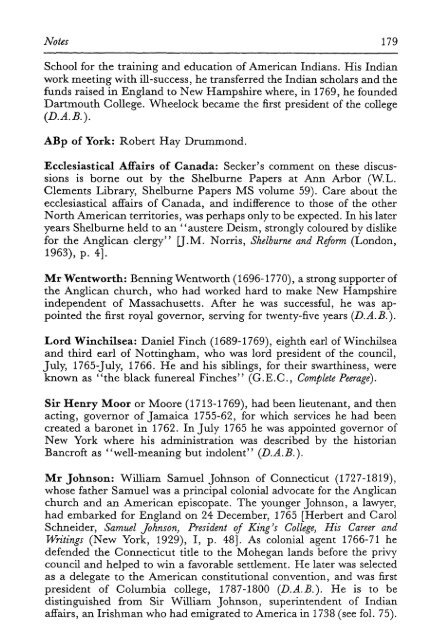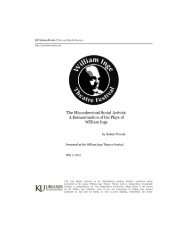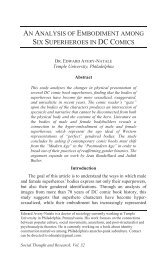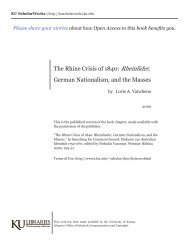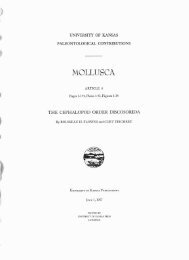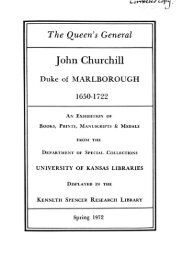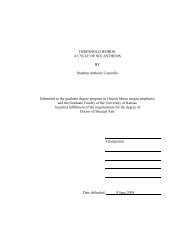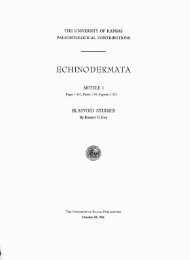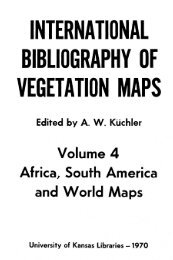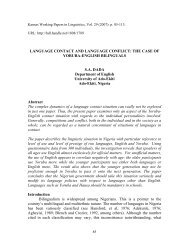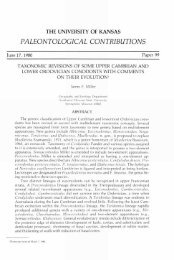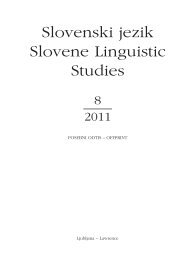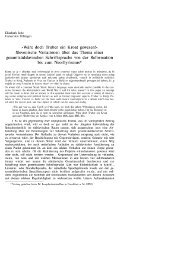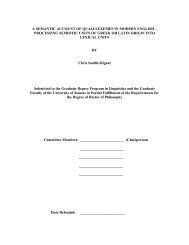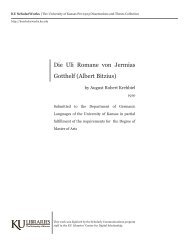Archbishop of Canterbury - KU ScholarWorks - The University of ...
Archbishop of Canterbury - KU ScholarWorks - The University of ...
Archbishop of Canterbury - KU ScholarWorks - The University of ...
Create successful ePaper yourself
Turn your PDF publications into a flip-book with our unique Google optimized e-Paper software.
Notes 179<br />
School for the training and education <strong>of</strong> American Indians. His Indian<br />
work meeting with ill-success, he transferred the Indian scholars and the<br />
funds raised in England to New Hampshire where, in 1769, he founded<br />
Dartmouth College. Wheelock became the first president <strong>of</strong> the college<br />
(D.A.B.).<br />
ABp <strong>of</strong> York: Robert Hay Drummond.<br />
Ecclesiastical Affairs <strong>of</strong> Canada: Seeker's comment on these discussions<br />
is borne out by the Shelburne Papers at Ann Arbor (W.L.<br />
Clements Library, Shelburne Papers MS volume 59). Care about the<br />
ecclesiastical affairs <strong>of</strong> Canada, and indifference to those <strong>of</strong> the other<br />
North American territories, was perhaps only to be expected. In his later<br />
years Shelburne held to an "austere Deism, strongly coloured by dislike<br />
for the Anglican clergy" Q.M. Norris, Shelburne and Reform (London,<br />
1963), p. 4].<br />
Mr Wentworth: Benning Wentworth (1696-1770), a strong supporter <strong>of</strong><br />
the Anglican church, who had worked hard to make New Hampshire<br />
independent <strong>of</strong> Massachusetts. After he was successful, he was appointed<br />
the first royal governor, serving for twenty-five years (D.A.B.).<br />
Lord Winchilsea: Daniel Finch (1689-1769), eighth earl <strong>of</strong> Winchilsea<br />
and third earl <strong>of</strong> Nottingham, who was lord president <strong>of</strong> the council,<br />
July, 1765-July, 1766. He and his siblings, for their swarthiness, were<br />
known as "the black funereal Finches" (G.E.C, Complete Peerage).<br />
Sir Henry Moor or Moore (1713-1769), had been lieutenant, and then<br />
acting, governor <strong>of</strong> Jamaica 1755-62, for which services he had been<br />
created a baronet in 1762. In July 1765 he was appointed governor <strong>of</strong><br />
New York where his administration was described by the historian<br />
Bancr<strong>of</strong>t as "well-meaning but indolent" (D.A.B.).<br />
Mr Johnson: William Samuel Johnson <strong>of</strong> Connecticut (1727-1819),<br />
whose father Samuel was a principal colonial advocate for the Anglican<br />
church and an American episcopate. <strong>The</strong> younger Johnson, a lawyer,<br />
had embarked for England on 24 December, 1765 [Herbert and Carol<br />
Schneider, Samuel Johnson, President <strong>of</strong> King's College, His Career and<br />
Writings (New York, 1929), I, p. 48]. As colonial agent 1766-71 he<br />
defended the Connecticut title to the Mohegan lands before the privy<br />
council and helped to win a favorable settlement. He later was selected<br />
as a delegate to the American constitutional convention, and was first<br />
president <strong>of</strong> Columbia college, 1787-1800 (D.A.B.). He is to be<br />
distinguished from Sir William Johnson, superintendent <strong>of</strong> Indian<br />
affairs, an Irishman who had emigrated to America in 1738 (see fol. 75).


